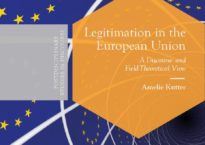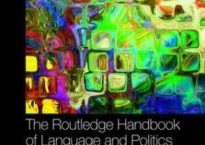Kutter, A. (2020) Legitimation in the European Union: a discourse- and field-theoretical view
This book investigates how political authority and legitimacy is constructed in the postnational setting of the European Union. Drawing on the example of the EU constitutional debate, and the use of ‘EU constitutional speak’ in Polish and French broadsheets, more particularly, the book shows how claims for legitimacy transform while being transposed from the discourse field of multilateral negotiation to that of national media.



